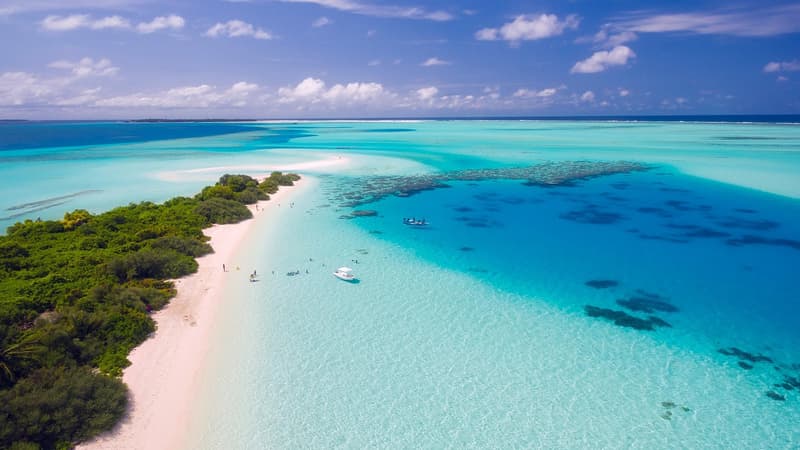The Maldives’ finances are in the red, yet the authorities of the ultra-tourist destination are confident. They say they do not need a bailout from the International Monetary Fund. The Minister of Foreign Affairs is clear:
This is a temporary and long-term solution for the IMF, which last May urged the Maldives to urgently increase revenue and reduce spending to avoid a major economic crisis.
In the first quarter of this year, external debt amounted to 3.37 billion dollars, equivalent to around 45% of GDP.
The Indian Ocean archipelago, best known for its exclusive coastal resorts, is continuing its tax hikes. According to the government, tax reforms and an overhaul of the management of public companies should improve the liquidity problem.
The concern of the Islamic financial market
Last month, the number of Sukuks issued by the government plummeted due to fears of default. Sukuks are Islamic financial securities, similar to bonds and which respect the principles of Sharia law, applied in the Maldives.
Default would set a precedent and it is unclear how the market would react. At the start of the year, it was worth $860 billion and strong growth was forecast.
In 2018, the Gulf monarchies, major issuers of financial securities, came to the aid of Bahrain, which was then in a similar situation. Analysts are now wondering whether those same countries could step in to help the island nation.
The Maldives has colossal debts due until 2026. The next payment, which is due in October, amounting to around $25 million, will be made, the Finance Minister assures.
The rating agency downgraded the country’s debt rating for the second time in two months last August, further raising concerns among international investors.
China as a partner
To restore its finances, the Maldives is increasingly turning to China. The partnership has intensified since the election of President Mohamed Muizzu a year ago. The latter had then led a campaign against the influence of India, a historic ally.
Beyond the military assistance agreement signed with Beijing a few months ago, the Maldives is mainly seeking loans and investments. China is now the main creditor of the Maldives, ahead of India, and accounts for around 20% of the external debt.
In January, the country increased its funding for infrastructure in the archipelago, but although the planned expansion of the airport and the increase in the number of hotels should stimulate growth, the IMF estimates that “uncertainty surrounding the outlook remains high.”
Beijing’s support may not be enough, and Mohamed Muizzu knows this well. He is due to meet Narendra Modi, the Indian prime minister, this month, despite tense relations. The war for influence between the two Asian powers is certainly not over.
Source: BFM TV


